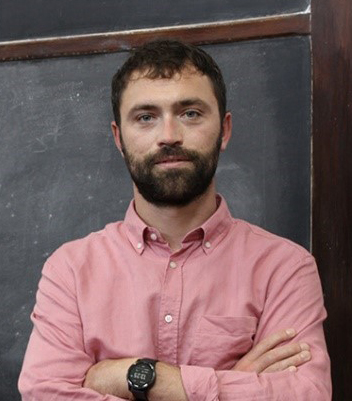

题目:A Comprehensive Chemical Kinetics Framework for the Production of Turquoise H2 and Value Added Carbon Materials from Light Hydrocarbons Pyrolysis
时间:2024年9月27日 14:00-15:30
地点:j9九游会官方网页版 F210会议室
邀请人:李玉阳 教授(航空动力研究所)
Biography
 Matteo Pelucchi is Tenure Track Assistant Professor of Chemical Engineering at Politecnico di Milano and will move to Associate as of 1st November 2024. He obtained a PhD in Industrial Chemistry and Chemical Engineering from the same institute in 2017 after having been appointed as a visiting research fellow at Argonne National Laboratory in 2016 and previously as a visiting graduate student at the National University of Ireland Galway in 2012. His research interests cover the development of chemical kinetic models for many thermochemical processes of interest in the context of energy transition and circular economy including sustainable fuels combustion, hydrocarbons cracking for the production of hydrogen and carbon materials, plastic and biomass waste valorization with pyrolysis and gasification.
Matteo Pelucchi is Tenure Track Assistant Professor of Chemical Engineering at Politecnico di Milano and will move to Associate as of 1st November 2024. He obtained a PhD in Industrial Chemistry and Chemical Engineering from the same institute in 2017 after having been appointed as a visiting research fellow at Argonne National Laboratory in 2016 and previously as a visiting graduate student at the National University of Ireland Galway in 2012. His research interests cover the development of chemical kinetic models for many thermochemical processes of interest in the context of energy transition and circular economy including sustainable fuels combustion, hydrocarbons cracking for the production of hydrogen and carbon materials, plastic and biomass waste valorization with pyrolysis and gasification.
Abstract
Hydrogen (H2) is a key energy vector in the context of sustainable development and circular economy. The CO2 emissions that accompany the most widely used process for its production today (i.e., steam methane reforming) highlights the need for efficient CO2 capture technologies that are presently struggling for large scale implementation. Pyrolysis of fossil or biogenic hydrocarbons (e.g. methane, biomethane, natural gas) is one of the most promising solutions in a short- to mid-term perspective. The key points to scale-up pyrolysis processes to produce H2 and VACs are to accelerate deposition efficiency, minimize the formation of amorphous carbon (i.e., particulate matter) and improve the quality of carbon material by-products. Therefore, it is of primary importance to control both homogeneous reactions in the gas phase, including particulate matter formation, and heterogeneous reactions occurring at the gas-solid interface. This work showcases recent research efforts in the development of a comprehensive chemical kinetic framework capable to contextually describe amorphous carbon formation in the gas phase (i.e. particulate matter), structured pyrocarbon production in CVD/CVI processes, carbon nanotubes synthesis in floating catalyst CVD reactors and turquoise hydrogen production.
